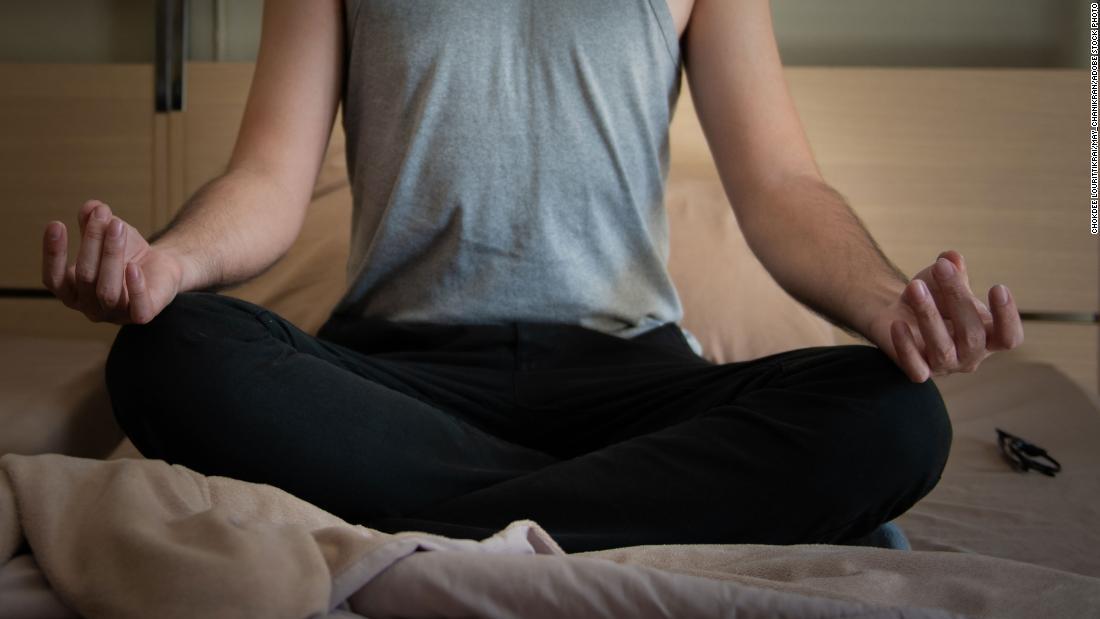How long does it take to recover from lack of sleep?
0:49
(CNN) -
Recently, I worked with a 25-year-old who was having difficulty at work.
He described being hard to think clearly and missing too many days.
And the relationship with his girlfriend was about to end due to his negligence.
Diagnosed with depression and anxiety, he said he felt disconnected from his life.
She had been in therapy for a couple of years and had tried medications for depression, anxiety, and attention problems.
Nothing seemed to work.
I asked him a question that I always ask: How is your dream?
I was not surprised when he told me that his sleeping patterns were "terrible."
He slept four to six hours a night during the week, and stayed up until two or three in the morning on social media or watching a television show.
He tried to regain sleep on the weekends, but sometimes he woke up even more tired.
His sleep patterns were established in childhood and carried over into his adult life.
When we gradually changed her sleeping habits, adding hours of sleep during the week and establishing a bedtime and a wake-up time, her symptoms began to decrease.
After two months, she had almost no depression or anxiety.
Our main interventions consisted of changing their sleeping habits.
Recovering from lack of sleep takes longer than you think, study finds
Sleep and mental health
It turns out that our sleep patterns are closely related to our degree of emotional well-being.
Adults should sleep at least seven hours a night, although 1 in 3 falls short of that minimum, according to the US Centers for Disease Control and Prevention (CDC).
When I ask my clients to keep track of their rest time, they find that they sleep a lot less than they think.
advertising
Our poor sleep patterns can lead to stress that contributes to anxiety, depression, and our ability to concentrate.
Poor sleep also disrupts participation in activities that support emotional well-being.
In fact, teens with irregular sleep patterns throughout the week can experience "social jet lag" beginning Monday morning, slowing them down both in performance and in connecting with others.
This can lead to not only decreased academic performance, but also delays, missed days, and an unwillingness to learn.
I have found that this decline in performance and readiness also occurs among my adult clients.
Do you have social jet lag?
This is what you can do
Finally, too many families that I have worked with experience chaotic afternoons, with to-dos, duties, or conflicts that drag on late into the night.
Diverse screens contribute to the hectic, disconcerting and haunting tone of too many homes.
I believe that developing better sleep habits is one of the fastest and most effective ways to improve the mental well-being of a person or a family.
Here are a number of manageable ways to quickly improve your sleep at home.
Leave the devices outside
Many of my clients end their days in bed staring at one screen or another, scrolling through social media or watching videos.
In recent years, smartphone addiction has become a common topic of reference in therapy visits.
Phone addiction can lead to trouble sleeping, especially when used late at night, according to a recent study of college students published in Frontiers in Psychiatry.
That is why I encourage my clients to keep cell phones and other screens out of their rooms and to replace them with a book, meditation or relaxing music.
Mindfulness exercises can also be helpful, even for children.
How to do mindfulness if you don't like to be still, according to experts
It seems to me that this change alone improves sleep quickly, and the symptoms of emotional difficulties also tend to go away, to some extent.
Removing loud music, bright light, and other stimuli from rooms also helps.
Developing good sleep hygiene together
It seems to me that families often share sleeping habits, which tend to be quite consistent, for better or for worse, within a home. Therefore, you can be a good sleep model for the rest of your family. If you want your children or your spouse to sleep better, set a clear time for everyone to go to sleep and the same for time to get up.
Consistency will help everyone develop healthy sleep habits fairly quickly, but don't be too discouraged if this change takes a little time. Just as it takes us time to get our bad sleep practices into a habit, it will also take time to develop healthier sleep hygiene. Make gradual changes, such as reducing bedtime to 15 to 30 minutes a week. Over time, you will find that you are getting what you need without the frustration of an immediate, forced change.
Perhaps the most powerful method of improving sleep is adding exercise to your day.
A survey by the National Sleep Foundation reported that people who exercised vigorously on a regular basis were almost twice as likely to report regular, high-quality sleep habits.
And sleep is easier for people who incorporate exercise into their daily routines.
Here are some tips to convince your child to leave the screen and exercise
Think of sleep as a process that begins at least an hour before you go to bed.
Create an atmosphere of relaxation in your home.
Watch a light episode of a favorite family show together.
Make time to read.
Dim the lights and separate the end of the night from the rest of the day.
These are powerful interventions that will help set a tone that suggests sleep and rest.
No moment like the present
Many sleep problems manifest themselves at the beginning of the school year.
Since children tend to start the academic year with poorly regulated sleep, reducing bedtime in small increments can resolve sleep problems quickly.
If I can get one of my teenage clients to sleep for even half an hour more at night, his symptoms decrease and his performance at school, work, sports, and other extracurricular activities improves markedly.
With improved sleep, my adult clients describe less depression and anxiety, more clarity at work, and more enjoyment in their days.
Make some of these changes now, develop better sleep habits at home, and help manage depression and anxiety for you and your family for a lifetime.
Sleep quality













